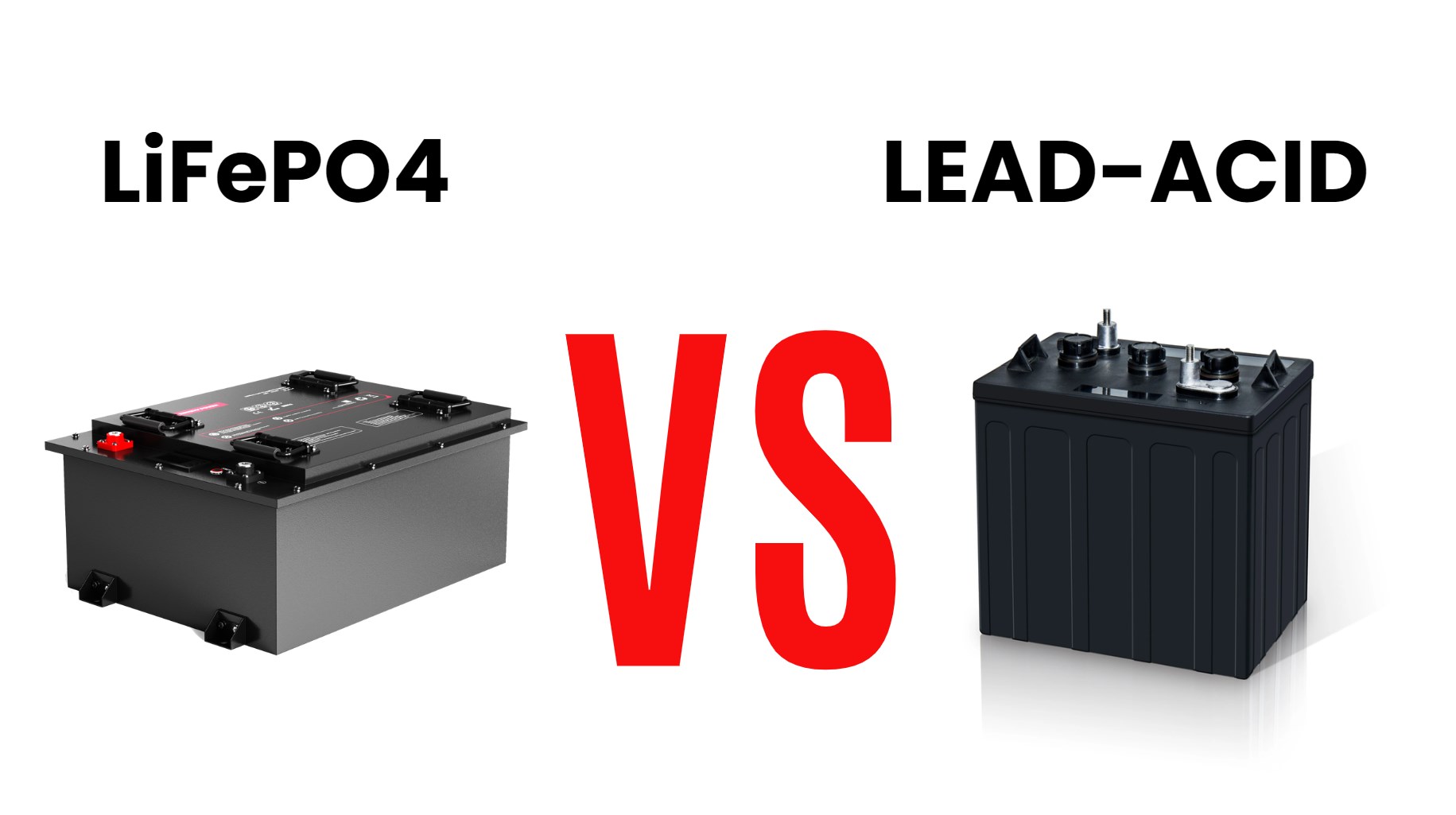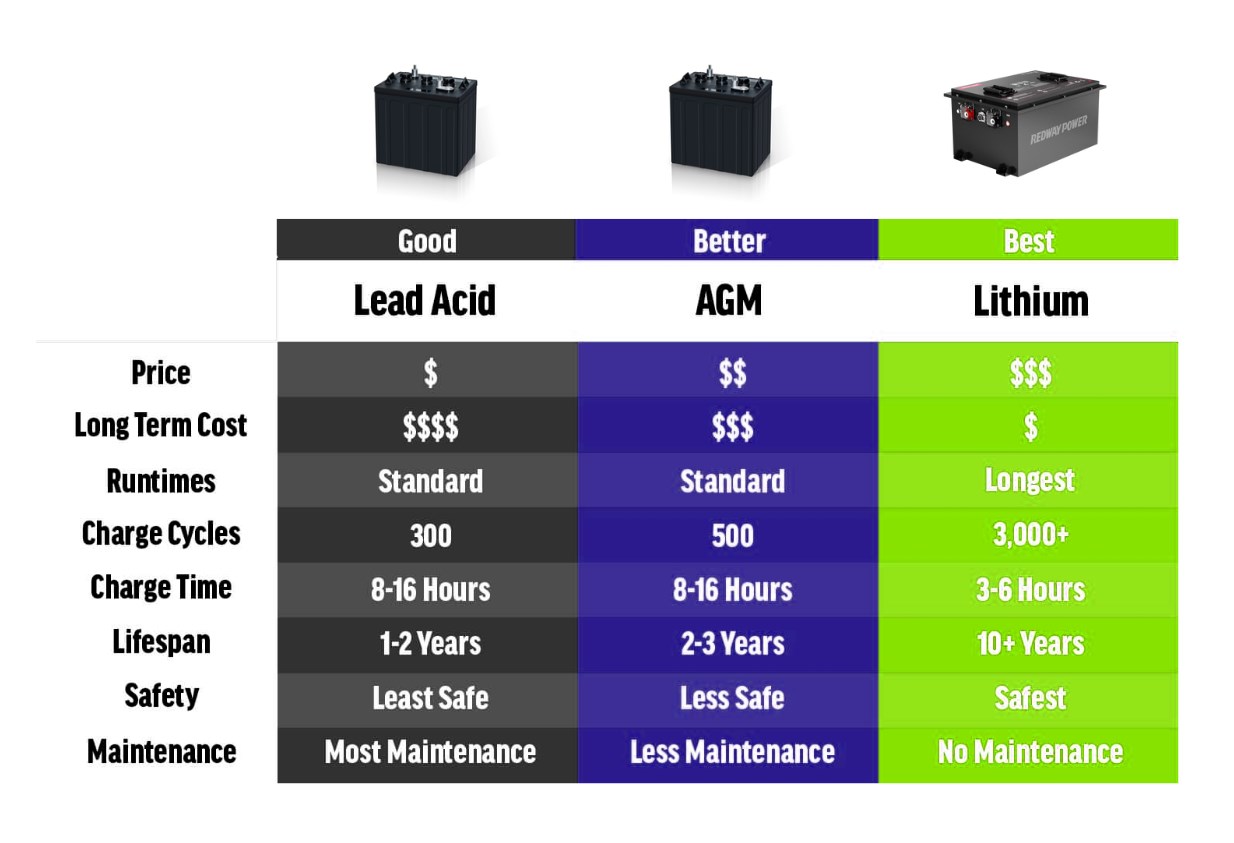LiFePO4 batteries offer significant advantages over traditional lead-acid batteries in golf carts, including longer lifespan, faster charging times, and improved safety features. While they may have a higher upfront cost, their efficiency and durability make them a more cost-effective option over time.
How Do LiFePO4 Batteries Compare to Lead-Acid Batteries for Golf Carts?
LiFePO4 batteries are increasingly popular in golf carts due to their superior performance characteristics compared to lead-acid batteries. They provide longer life cycles, enhanced safety features, and greater energy efficiency, making them an excellent choice for modern electric golf carts.
What Are the Key Advantages of LiFePO4 Batteries?
LiFePO4 batteries come with several advantages:
Wholesale lithium golf cart batteries with 10-year life? Check here.
- Longevity: They can last between 2,000 to 5,000 charge cycles, significantly outlasting lead-acid batteries.
- Safety: Their chemical stability reduces risks like thermal runaway.
- Efficiency: They maintain consistent voltage throughout their discharge cycle, ensuring reliable performance.
- Environmental Impact: They contain no toxic heavy metals like lead, making them more eco-friendly.
How Do Lifespan and Cycle Life Differ Between Battery Types?
LiFePO4 batteries typically offer a lifespan of 2,000 to 5,000 cycles, while lead-acid batteries generally last only 300 to 500 cycles. This difference means that while lead-acid batteries may be cheaper upfront, LiFePO4 batteries prove more economical over time due to fewer replacements.
How Do Charging Times Compare Between Battery Types?
LiFePO4 batteries charge much faster than lead-acid batteries. A LiFePO4 battery can reach full charge in about 2-3 hours, while lead-acid batteries often take 8-12 hours to charge fully. This rapid charging capability enhances convenience for users.
Want OEM lithium forklift batteries at wholesale prices? Check here.
Know More:
What Are the Benefits of Using LiFePO4 Golf Cart Batteries?
What is the Chemistry Behind LiFePO4 Batteries?
LiFePO4 Batteries vs Lead-Acid Batteries for Golf Carts
What Are the Key Components of a LiFePO4 Golf Cart Battery?
What Are the Weight and Size Differences?
LiFePO4 batteries are typically lighter and more compact than lead-acid counterparts. For example, a standard lead-acid battery can weigh around 60-70 pounds, while a similar capacity LiFePO4 battery may weigh only 30-40 pounds. This weight reduction improves overall golf cart performance.
What Are the Environmental Impacts of Each Battery Type?
LiFePO4 batteries are more environmentally friendly as they do not contain harmful materials like lead or cadmium found in traditional lead-acid batteries. This makes them easier to recycle and less harmful when disposed of improperly.
How Does Temperature Affect Battery Performance?
Temperature can significantly impact battery performance; LiFePO4 batteries perform well across a wide temperature range (-20°C to 60°C) without significant capacity loss. In contrast, lead-acid batteries may experience reduced efficiency in extreme temperatures.
Expert Views:
“Choosing between LiFePO4 and lead-acid batteries is crucial for optimizing golf cart performance,” states an expert from Redway. “While initial costs may be higher for LiFePO4, their longevity and efficiency make them a wise investment for serious golfers looking to enhance their experience.”
Conclusion
In summary, LiFePO4 batteries present numerous advantages over traditional lead-acid batteries in golf carts, including longer lifespan, faster charging times, and better environmental impact. While they may require a higher initial investment, their long-term benefits make them an increasingly popular choice among golf cart users.
FAQ Section
- What is the lifespan of a LiFePO4 battery compared to a lead-acid battery?
LiFePO4 batteries typically last between 2,000 to 5,000 cycles, while lead-acid batteries last around 300 to 500 cycles. - Are LiFePO4 batteries safer than lead-acid batteries?
Yes, LiFePO4 batteries have enhanced safety features that reduce risks associated with overheating or thermal runaway. - How do charging times differ between battery types?
LiFePO4 batteries can fully charge in about 2-3 hours compared to 8-12 hours for lead-acid batteries.
Lithium Ion vs. AGM vs. Lead Acid Batteries







